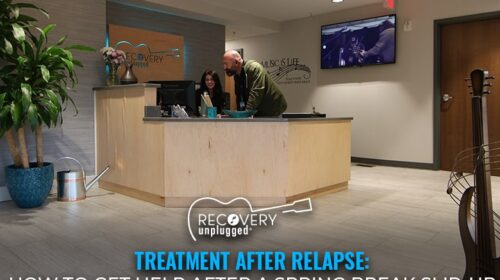Summer is when touring musicians of all stripes hit the road to connect with their fans and expect their audiences. Touring is a fact of life for most musicians, and a great way stay immersed in their music while taking it to new cities and listeners; it can also be challenging for musicians who are in recovery, regardless of how far along they are on their journey.
Musicians in recovery are generally governed by two forces: their art and their commitment to their sobriety. These all-consuming passions dictate what they do on a day-to-day and minute-by-minute basis. Unfortunately, they also have the potential to exist in direct conflict with one another, as we’ve seen time and again throughout history. However misguided, it’s actually believed by many that certain artists have used substances to expand their artistic vision. Some have even been celebrated for their leveraging of alcohol and other drugs to develop their sound and their legacy in popular music. For the touring musician in recovery, however, the relationship between music and addiction is often played out more through the daily struggle to stay sober than anything else.
Whether they’re hitting the road in their van or supported by a major label, touring is an integral part of most musicians’ lives. For those in recovery, it could mean a whole new level or logistical and mental preparation. Between the hectic travel schedule, little time to take proper self-care and the heightened risk of temptation, touring can be one of the greatest tests to a musician’s recovery; the same can be said for a recovering businessman who travels for work on a frequent basis. Regardless of if you’re headlining a mid-size to major tour or just going as far as you can with the resources you have, your commitment to recovery and yourself doesn’t have to suffer.
Recovery teaches us to establish an anchor and immerse ourselves in routine. These elements of stability can be easily disrupted if we’re traveling around the country or even the world. When you’re on tour, you can frequently find yourself out of touch with the people who understand you most, including your sponsors and your family, and there are new experiences around every practically every corner.
You don’t have to be afraid of these new experiences if you temper them with the lessons and teachings of recovery. There are things you can do to ensure that your tour stays entirely about your music, rather than working night and day to avoid relapse.
Keep Your Friends Close – Establish a contact schedule with your loved ones and sponsors prior to leaving. This will ensure you that you can have a little bit of control in a potentially unpredictable environment, and will provide you with some support during the more vulnerable periods. It’s also helpful to keep your therapist on speed-dial for emergency sessions, should the need arise.
It’s Time You Had Some Time Alone – The touring process is stressful, regardless of whether or not we’re in recovery. There will inevitably some point at which it all feels like too much. This is why we need to schedule off-days for fun, relaxation and self-reflection. Everyone in recovery, whether they’re a musician, a banker, a pilot or lawyer should take regular self-diagnostics to determine their level of strength and vulnerability.
Keep Your Recovery with You – Download or bring hard copies of recovery-related reading material to help you keep yourself in regular contact with the process. Taking some time to read a few passages every day keeps the journey fresh in the mind.
Know When to Walk Away – Tour is not spent entirely on stage. It can be hard to avoid some of the extra-curricular activities in between performances. It’s also hard to expect everyone to understand our struggle and why we may not be able to be around drugs and alcohol without simply choosing not to partake. Simple avoidance can make the process much easier. Putting distance between us and situations involving excessive partying can mean the difference between continued sobriety and relapse.
While these tips are especially appropriate for touring musicians, they are also applicable to anyone in recovery who find themselves vulnerable and out of their comfort zone. Self-awareness and continued diligence are two of the most effective behavioral tools in maintaining long-term success.

























